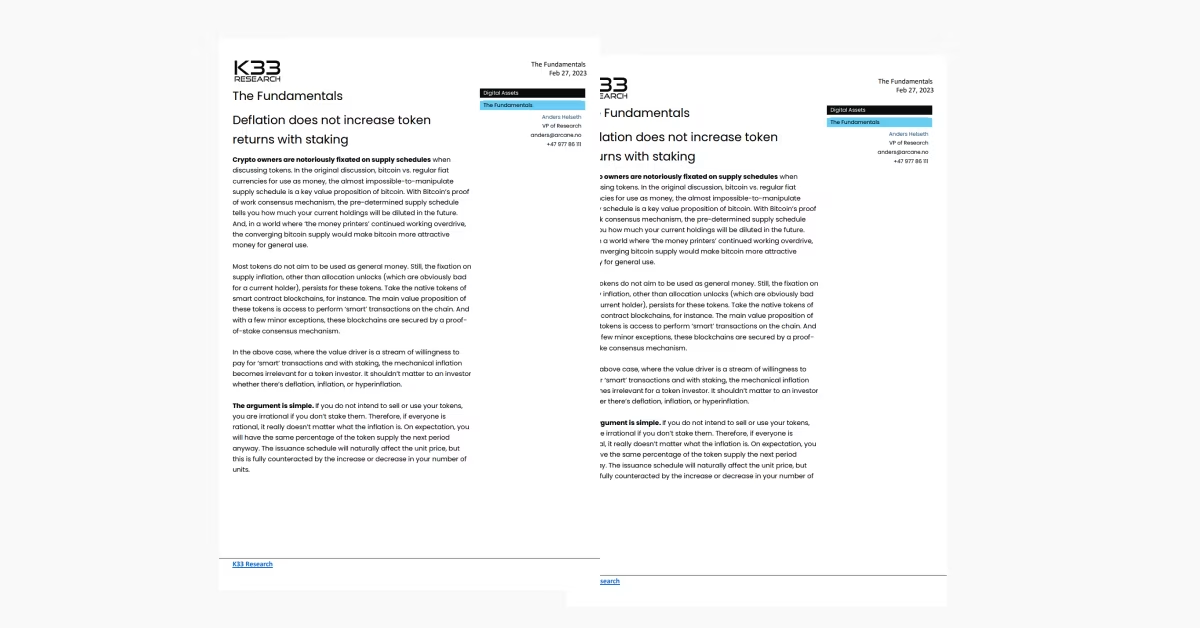Ultrasound does not matter for 'smart blockchain tokens'
Deflation does not increase token returns with staking.
Preview
Crypto owners are notoriously fixated on supply schedules when discussing tokens. In the original discussion, bitcoin vs. regular fiat currencies for use as money, the almost impossible-to-manipulate supply schedule is a key value proposition of bitcoin. With Bitcoin’s proof of work consensus mechanism, the pre-determined supply schedule tells you how much your current holdings will be diluted in the future. And, in a world where ‘the money printers’ continued working overdrive, the converging bitcoin supply would make bitcoin more attractive money for general use. Most tokens do not aim to be used as general money. Still, the fixation on supply inflation, other than allocation unlocks (which are obviously bad for a current holder), persists for these tokens. Take the native tokens of smart contract blockchains, for instance. The main value proposition of these tokens is access to perform ‘smart’ transactions on the chain. And with a few minor exceptions, these blockchains are secured by a proof-of-stake consensus mechanism. In the above case, where the value driver is a stream of willingness to pay for ‘smart’ transactions and with staking, the mechanical inflation becomes irrelevant for a token investor. It shouldn’t matter to an investor whether there’s deflation, inflation, or hyperinflation. The argument is simple. If you do not intend to sell or use your tokens, you are irrational if you don’t stake them. Therefore, if everyone is rational, it really doesn’t matter what the inflation is. On expectation, you will have the same percentage of the token supply the next period anyway. The issuance schedule will naturally affect the unit price, but this is fully counteracted by the increase or decrease in your number of units.